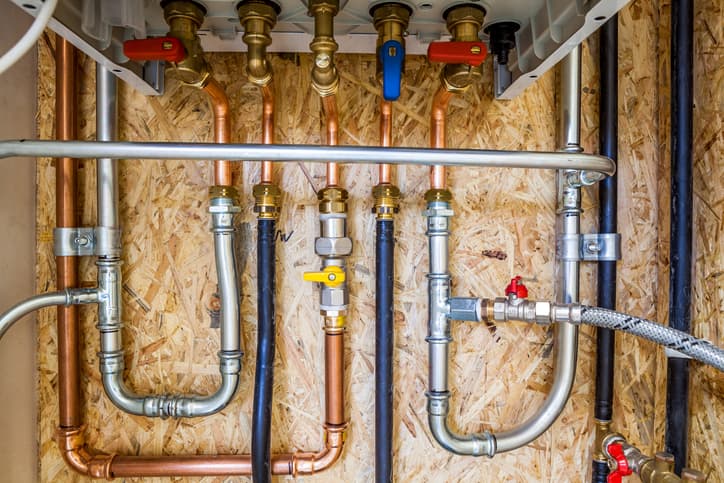One way to ensure you don’t run into frequent plumbing issues in your home or business is to keep your pipes in good condition. Regularly checking and maintaining your plumbing system is an excellent way to avoid costly leaks, clogs, and other major plumbing problems. Here are some easy tips you can do to make sure your pipes are in the best condition.
1. Flush Out Your Drains Regularly
A clog in the pipes is one of the most common plumbing issues professionals are called to fix. Usually, this happens when the problem was left untreated long enough for it to become a significant clog. One thing you can do to avoid this is to clear out your drains regularly using a safe and effective solution of baking soda and vinegar. You can also use bleach to clear a mild clog in your drain.
Simply pour the bleach or baking soda and vinegar solution into your drain and allow it to sit for a few minutes. Then, run your hot water for another two to five minutes to flush out the pipes. This will help major clogs from building up and possibly causing bigger plumbing issues down the road.
2. Avoid Harmful Chemicals
Although they’re marketed as a safe, quick fix, harsh liquid chemicals have the potential to erode and weaken your pipes. Your pipes can become warped and degraded enough to cause cracks and leaks. With prolonged use, you may be looking at long-term damage and significant repairs.
You may think you’re saving money by purchasing chemical drain cleaners, but you are only buying a very temporary solution while also creating a bigger problem. In the end, that ends up being much more costly than using a safe drain cleaner or investing in professional drain cleaning services.
3. Install a Water Softener
Many cities, including Las Vegas, are notorious for having hard water. Hard water can wreak havoc on your plumbing system by allowing excess minerals to build up in the pipes and plumbing fixtures. You may be able to see this buildup as a hard, white crust on your faucets, showerheads, and drains. If that’s the case, this is also happening inside your pipes and fixtures!
One way to avoid this problem is to have a water softener system installed in your home or business. Not only will this help to keep your pipes in good condition, but it will also improve the taste and smell of your water, be easier on your skin, and stretch the life of your water heater.
Related: Seven Ways to Reduce Water Costs At Home
4. Lower Your Water Pressure
It may not have occurred to you, and to many other homeowners, that high water pressure is a potential hazard for your pipes. Constant high water pressure puts a major strain on your pipes and will require more from your plumbing fixtures, valves, and joints. Regularly check your water pressure to make sure it’s in the normal range and not damaging your plumbing system.
In general, the normal water pressure range for a home should be anywhere from 30 to 60 pounds per square inch (psi). Water pressure in the Las Vegas Valley Water District system ranges from 30 to 100 psi [1], so there is potential your water pressure may be too high. Using a hose bib gauge, you can see where your water pressure is so you can adjust accordingly.
Do you need help fixing common plumbing problems? Call the plumbing experts at Larkin Plumbing today.
5. Call for Repairs When Needed
There are certain plumbing repairs you can do yourself, but some problems can be very complicated and require professional tools and expertise to fix completely. If you feel like you’re a little out of your depth when it comes to a plumbing issue, don’t ignore the problem or wait to see if it will just go away on its own. That’s almost never the case.
By contacting a professional plumber, you’ll be able to evaluate the issue and have the necessary repairs done before it becomes a major plumbing problem. The longer you wait, the worse it will get, and the more expensive and invasive the repairs will be. Be proactive and have a professional plumber deal with it sooner rather than later.
[1] Water pressure [Webpage]. Las Vegas Valley Water District. Retrieved 21 October 2019, from https://www.lvvwd.com/customer-service/water-service/water-pressure.html

